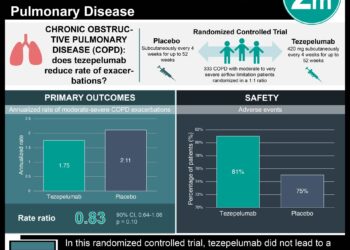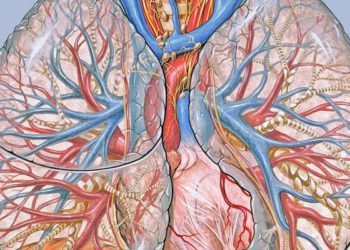Combination therapy of a monoclonal antibody and atorvastatin may help patients reach target LDL levels
Image: PD
Key study points:
- A monoclonal antibody to PCKS9 (an enzyme that degrades LDL receptors) in combination with atorvastatin significantly reduced LDL after 8 weeks of use compared to atorvastatin alone.
Primer: Cardiovascular disease is one of the major causes of death in North America. One of the risk factors contributing to its increasing incidence is high cholesterol; specifically, a low-density lipid (LDL) level greater than 100 mg/dL is associated with an increased risk of heart disease.
As many North Americans are unable to meet this target with diet alone, many drugs have been developed to decrease the amount of LDL cholesterol within plasma. Statins, for example, have the potential of lowering LDL plasma levels by about 20 to 50%.
However, there is a small contingent of patients who still do not reach the recommended levels with statin therapy. An alternative therapeutic strategy might include targeting a protein called serum proprotein convertase subtilisin/kexin 9 (PCSK9). Its function is to bind to LDL receptors in tissues such as the liver and cause their degradation, which reduces the removal of LDL cholesterol from the blood stream.
The purpose of this phase 2 study was to determine whether SAR236553, an antibody that binds to PCSK9 and keeps it from interacting with the LDL receptor, in combination with atorvastatin, could decrease LDL levels in patients who could not reach target cholesterol levels.
Background reading:
- Efficacy and safety of more intensive lowering of LDL cholesterol: a meta-analysis of data from 170,000 participants in 26 randomised trials.
- Effect of a monoclonal antibody to PCSK9 on LDL cholesterol.
This [double-blind, phase II randomized controlled] study evaluated the use of high or low dose atorvastatin with SAR236553 vs. high dose atorvastatin with placebo. Patients received a subcutaneous shot of the monoclonal antibody or placebo every 2 weeks.
There was a significant reduction in plasma LDL from baseline when comparing the high dose atorvastatin plus the antibody vs. the control group (73.2% vs. 17.3%, p<0.001). This trend was also seen in other cholesterol measures such as Apolipoprotein B, non-HDL cholesterol and total cholesterol. All patients who used the monoclonal antibody achieved LDL < 100 mg/dL compared to 52% in the control group.
In sum: The authors showed that patients who used an antibody to a degrader of LDL-receptors in combination with atorvastatin had significantly greater reductions in LDL than patients who used atorvastatin alone.
Some limitations of this study include the small number of patients (~30 in each arm), the length of the study (8 weeks) and the exclusion of patients with diabetes and prior cardiovascular events. Furthermore, this study only measured decreases in LDL instead of hard endpoints like the number of cardiovascular events. The phase 3 trial would do well to further elucidate these points before we consider treating patients with the antibody.
Click to read the study in NEJM
By [JC] and [MP]
© 2012 2minutemedicine.com. All rights reserved. No works may be reproduced without written consent from 2minutemedicine.com. Disclaimer: We present factual information directly from peer reviewed medical journals. No post should be construed as medical advice and is not intended as such by the authors or by 2minutemedicine.com. PLEASE SEE A HEALTHCARE PROVIDER IN YOUR AREA IF YOU SEEK MEDICAL ADVICE OF ANY SORT.

![siRNA against antithrombin alleviates symptoms of hemophilia [PreClinical]](https://www.2minutemedicine.com/wp-content/uploads/2015/04/clot-CCWiki-350x250.jpg)


